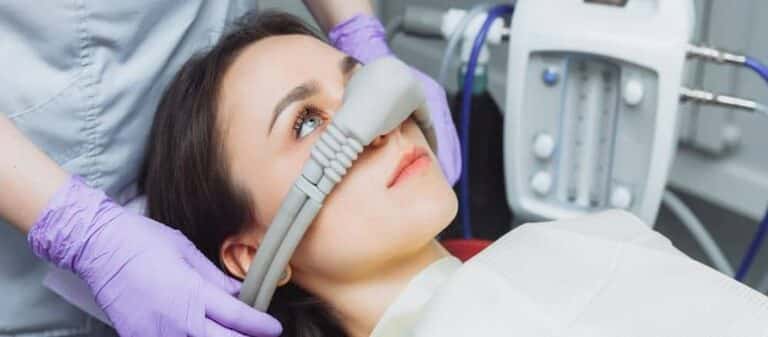Dental hygiene and regular checkups are essential to maintaining the health of your teeth and gums. Sedation dentistry may be the solution for you if you’re one of the Australians who put off visiting the dentist because of worry or dread. Your routine dental appointments will become stress-free and comfortable thanks to this method.
If you come up with justifications to avoid going to dental appointments, you might be one of those people who suffer from dental anxiety or phobia. People with dental anxiety often avoid the dentist because they get anxious n the dentist’s chair.
But if you’re afraid of the dentist, you’ll do anything to avoid going. Worry and nervousness might keep you from getting a decent night’s sleep the night before a meeting. Going to the dentist will also make you feel unwell.
You’re not alone if any of this seems familiar to you; millions of others go through the same things. The sedation dental procedure may make you feel more at ease and comfortable.

Dental Sedation & Types
Patients with sedation dentistry receive various medications to help them unwind while receiving dental care. Sleep dentistry was the previous name for sedation dentistry. The majority of sedation dentistry patients stay awake for the duration of the operation, though—only those who are given general anaesthesia in an emergency dose off.
Based on the patient’s level of fear and anxiety, there are four main categories of sedation practises. It involves general anaesthesia, sedation with nitrous oxide, oral sedation, and intravenous sedation. Additionally, sedatives now allow patients who might otherwise avoid the dentist to get essential dental care.
-
Oral Sedation
Before obtaining dental care, a patient is sedated by taking an oral sedative. Usually, the patient takes this medication an hour before the surgery. Although this type of sedative relaxes you, you remain alert. The level of sleepiness varies depending on the dosage.
-
Intravenous Sedation
Dentists use intravenous sedation to ensure a consistent drug supply during dental surgery. However, it causes patients to become drowsy and unaware of what is happening. If the dentist chooses to sedate you using this technique, you will be required to wear a nasal oxygen tube, and the dentist will monitor your vital signs while you under sedation.
-
Nitrous Oxide
Nitrous oxide and oxygen are both breathed in by patients who use nitrous oxide as an inhaled sedative to relax. Throughout the procedure, the patient receives nitrous oxide through a nasal mask. Dentists can change the dosage as necessary.
Inhaled sedation wears off more quickly than other types of sedation. It typically allows patients to drive themselves home after surgery.
-
General Anaesthesia
A qualified dentist administers general anaesthesia to a patient. The dental patient falls asleep and sleeps for a long time during the procedure. You won’t remember anything when you wake up because dentists will monitor your vital signs during the process to assure your safety.
Different Levels Of Sedation
Three different levels of sedation are there in dental procedures, including:
- Minimal sedation: Despite being awake, you get a sense of calm and relaxation thanks to the drug. It helps patients to continue responding to verbal commands.
- Moderate sedation – At this level of sedation, you are still conscious but may feel sleepy or dreamy. If you’re experiencing moderate sedation, You will not remember what happens throughout the treatment or how you think. You can still obey verbal commands most of the time, but the dentist may need to stimulate you.
- Deep sedation – During this type of dental sedation, you are almost asleep, but your dentist has the option to revive you if necessary.
- General anaesthesia – Another word for general anaesthesia is unconscious drowsiness. It is used to make you completely unconscious during a dental operation.
Who Are Suitable For Sedation
You can ask your dentist whether you can have dental sedation during your next appointment. First, though, find out from your dentist if any of the following describe you:
- Your anxiety and unease increase before a dental appointment.
- You have trouble regulating your movement.
- Your teeth are brittle.
- You have trouble regulating your movement.
- You’ve previously experienced a horrific event.
- You’re anxious about needles.
- You struggle with complex dental issues.
- You have a hard time numbing.
- Patients who need special care
If you have any queries or want to discuss your dental sedation needs, you can call Bay Street Dental Group at (03) 9646 2577 or email [email protected].
Frequently Asked Questions
What if my dental health insurance does not cover sedation dentistry?
Dental insurance plans with the highest benefits often only partially cover sedation dentistry. For example, your insurance plan might cover the costs of the dental work and procedures themselves, but it is typically less possible to cover the costs of sedation. Additionally, because most, if not all, insurance companies consider sedation to be an elective operation, they do not provide coverage for it.
However, specific health insurance plans may cover it if sedation is medically necessary due to a pre-existing medical condition like patients with special needs. You can thus talk to your provider for exact details.
What to look for in a specialist sedation dentist?
In most dental offices, sedation is used sparingly to moderately during sedation dentistry operations. However, not all dental practises may have the required training or experience in this field. To find a dental office that provides sedation, you might consider the following:
- Qualifications – You can check the dentist’s qualifications to discover whether they have any experience or training in administering sedation. You could also ask them about their success in previous sedation cases.
- Experience – A licenced dentist must have a great deal of experience treating patients who need sedation dentistry, including children, adults with special needs, and others.
- Specialisation – Any general practice can obtain a licence to dispense particular sedative doses. However, sedation dentistry specialists will be better able to treat any ailment promptly and painlessly. People with specific problems or restrictions, such as those with special requirements, must receive it more than other patients.
Can I request to be put to sleep by the dentist while they work on my teeth?
If your dentist determines that sedation is necessary, you can get it. The technique will decrease any physical or physiological pain it may create. Your dentist will administer the sedative either before or during the procedure. Your level of anxiety, the conditions surrounding your care, and the type of sedation used all play a part.












